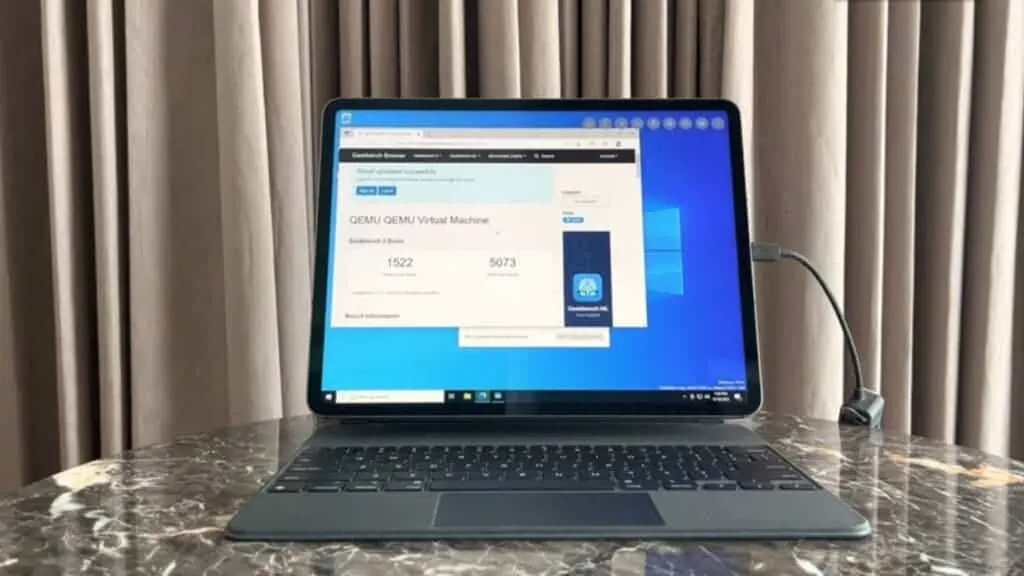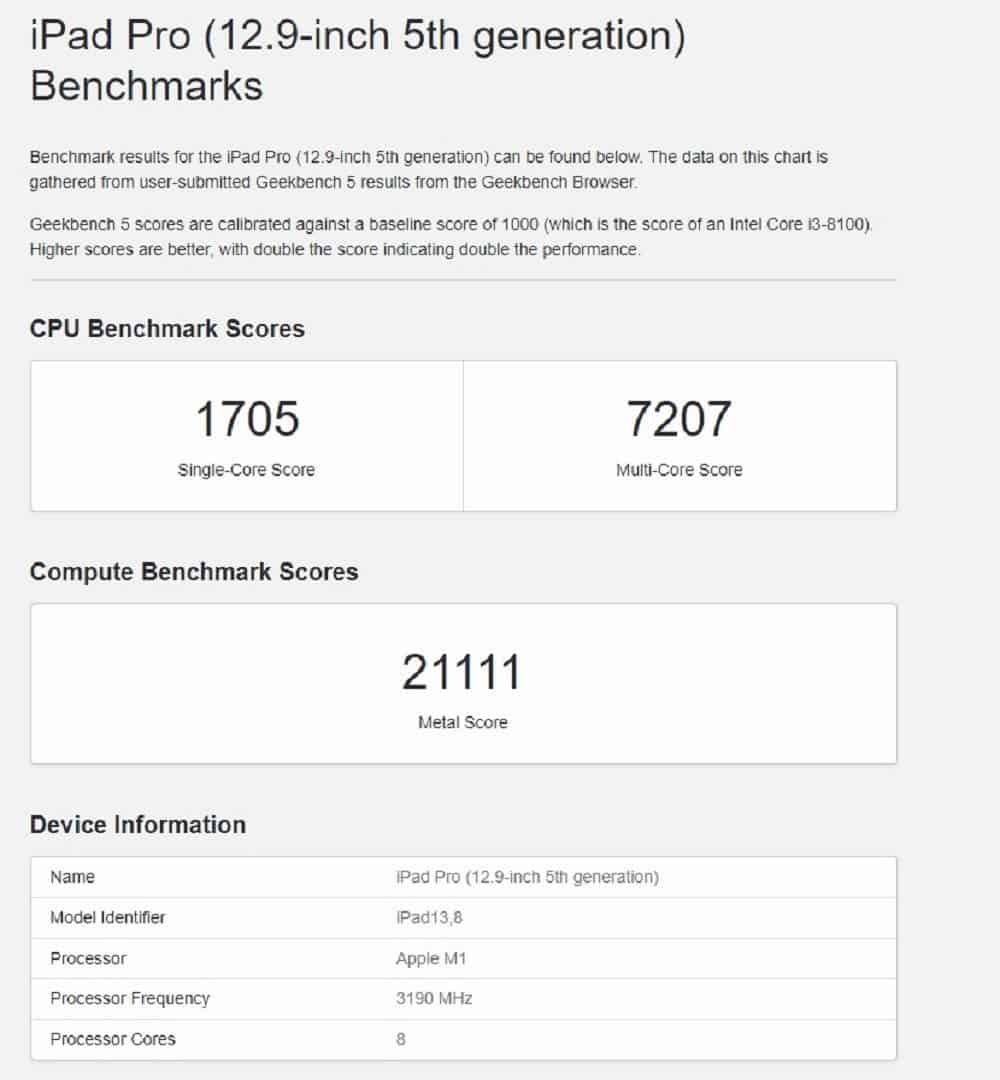A few bloggers recently shared their experiences running Windows 10 on an iPad Pro with the M1 chip.
The blogger ran successfully and used Geekbench to perform a benchmark test. According to the results, the iPad Pro performed well on Windows 10 with single-core scores of 1522 and multi-core scores of 5073. which, in essence, has performance levels on iPadOS of 90% and 70% of the M1 iPad Pro. They are “going at full speed” because of this.
It’s important to note that the blogger did not immediately flash the iPad Pro with Windows 10. nonetheless depends on the virtual machine to finish the task.
THE M1 IPAD PRO WORKS PERFECTLY WITH WINDOWS 10

The virtual machine, known as UTM, is based on QEMU technology and works with macOS at the moment. It enables users to run Windows or Linux operating systems on iPhones and iPads without having to jailbreak them.
This virtual machine supports more than 30 processors in total, including x86 64, AMR64, RISC-V, and other architectures to allow the operation of systems with iOS 11 and higher, according to the official information provided by UTM.
The virtual machine also supports external controllers, keyboards, mice, touchpads, Apple Pencils, and other devices, allowing for the maximum extension of the system’s operating capabilities.

Apple’s iPads continue to use LCD panels, despite the fact that the majority of high-end tablets now have OLED or AMOLED screens. However, things may soon change as recent reports claim that the Cupertino company plans to introduce the iPad with OLED technology as early as 2023. In addition, it is now expected that Apple would utilise a hybrid screen type, which has a significant advantage.
A hybrid OLED display will reportedly be used on Apple’s first OLED iPad (Pro). The Elec claims that the design will differ from the typical one found in most Android tablets and smartphones. To avoid warping, the system will combine rigid and flexible panel technologies. Larger gadgets with panels bigger than 10 inches frequently have this.
Considering that OLED technology is still being developed. The likelihood of the OLED iPad or MacBook Pro debuting during the event next month is lower. We can possibly expect it to be ready as early as the next year. Although Samsung, LG, and BOE, the manufacturers of the display, may still be a factor.


